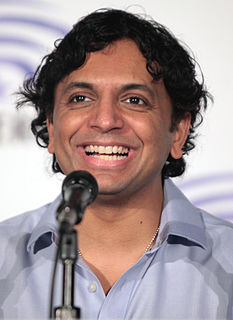A Quote by Leigh Bardugo
Publishing and film are such different worlds for writers.
Quote Topics
Related Quotes
What writers of fantasy, science fiction, and much historical fiction do for a living is different from what writers of so-called literary or other kinds of fiction do. The name of the game in F/SF/HF is creating fictional worlds and then telling particular stories set in those worlds. If you're doing it right, then the reader, coming to the end of the story, will say, "Hey, wait a minute, there are so many other stories that could be told in this universe!" And that's how we get the sprawling, coherent fictional universes that fandom is all about.
African films should be thought of as offering as many different points of view as the film of any other different continent. Nobody would say that French film is all European film, or Italian film is all European film. And in the same way that those places have different filmmakers that speak to different issues, all the countries in Africa have that too.
There are people who have never studied writing who are capable of being writers. I know this because I am an example. I was a part-time registered nurse, a wife, and a mother when I began publishing. I'd taken no classes, had no experience, no knowledge of the publishing world, no agent, no contacts ... Take the risk to let all that is in you, out. Escape into the open.
When the film [Certified Copy] was in the Cannes Festival, I realized that the fact of having it shot in a different culture, in a different language, in a different setting, that wasn't mine and that I didn't belong to, gave me a totally different relationship to the film. When I was sitting in the audience during the official screening in Cannes, I didn't feel that it was my film.
I just feel like TV takes more risks than film. Film has gotten very safe: it's very compartmentalized about what type of things will be successful. And whereas in TV, since all these new platforms opened, they're saying to writers, go out there, write the most different show that you can write. Write something that's really original and different.
Most writers have no idea how to make a film. It's a totally different skill set. Nor is it just to translate exactly what's on the page directly on to the screen - because that would be terrible. It would be five hours long, and the structure would be a mess. But the writers know the characters and the story.


































